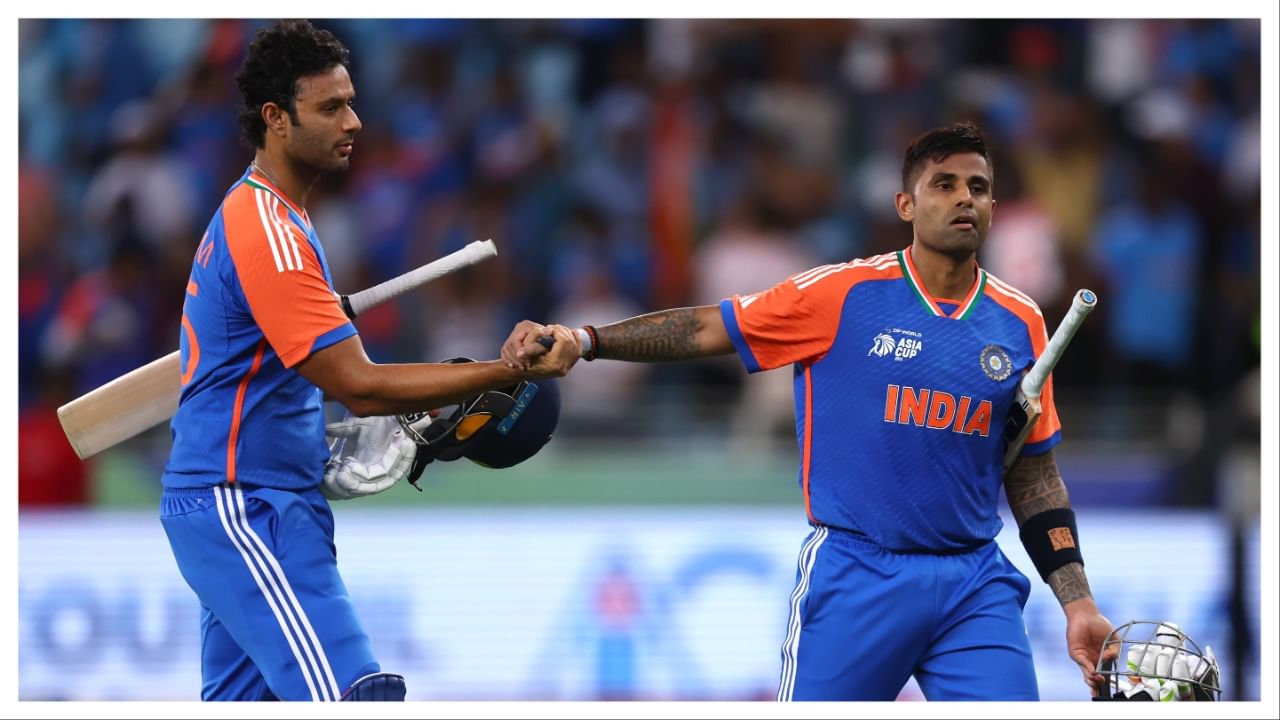New Delhi: The India-Pakistan rivalry has always carried more weight than just cricket and Sunday’s Asia Cup Group A clash in Dubai underlined that once again. India wo convincingly by seven wickets but what dominated headlines wasn’t just the result. It was the refusal of Suryakumar Yadav and his players to engage in the customary handshake with their Pakistani counterparts both before and after the contest.
Traditionally, captains greet each other at the toss, exchange sheets with the referee and wrap games with a handshake line between players. On this occasion, none of the above happened. Suryakumar and Pakistan skipper Salman Agha walked up for the toss but deliberately avoided eye contact. At full-time, while Salman and his team queued up for the post-match courtesy, the Indians walked straight off the field.
No handshake by Indian team.
Pakistan waited for handshake but India went to the dressing room and closed the doors.
What a humiliation by Indian team 🤣
Belt treatment for Porkis#INDvPAK #IndianCricket #INDvsPAK #indvspak2025 #AsiaCupT20 #AsiaCup #ShubmanGill #ViratKohli𓃵 pic.twitter.com/zXMXZEmiuP
— Aman (@dharma_watch) September 14, 2025
The decision came against the backdrop of the Pahalgam terror attack earlier this year in which 26 Indian tourists lost their lives and in response to that India launched “Operation Sindoor” targeting terror camps across the border. Given the circumstances, the Indian camp believed certain gestures would be inappropriate and made a collective call to skip them.
‘A team call’
After sealing the win with a six, Suryakumar did not glance towards the opposition dugout and instead walked directly back to his teammates. When asked about the gesture, the Indian skipper was blunt. “We took a call as we came here to only play. We gave a proper reply. Some things are beyond sportsmanship,” he said, dedicating the win to India’s armed forces and the families of the Pahalgam victims.
Well done, Team India! After thrashing Pakistan, the Indian team didn’t even come out to shake hands with the losing side, as is customary.
The best part: Captain Suryakumar Yadav expressed solidarity with the families of the victims of the Pahalgam terror attack. He dedicated… pic.twitter.com/MlAC8axCGa
— Amit Malviya (@amitmalviya) September 14, 2025
It later emerged that the stance had been discussed well before the game. Sources indicated that members of the support staff backed by the BCCI, strongly advised against traditional pre- and post-match formalities. The players fully aligned and executed that decision without hesitation. “We are aligned with our government and the BCCI,” Suryakumar reiterated, making it clear there was no ambiguity about where the team stood.
Pakistan’s reaction reflected the bitterness that spilled over as Salman skipped the official presentation ceremony, leaving coach Mike Hesson to face the media. “We wanted to shake hands but were disappointed the opposition didn’t do that. Salman not coming for the post-match presentation was cause and effect,” Hesson admitted.
Political undertones
India had already announced a strict policy ruling out bilateral sporting engagements with Pakistan earlier in the year, allowing matches only at multilateral events such as the Asia Cup. The call to avoid handshakes was an extension of that position. While international cricket thrives on gestures of respect and camaraderie, Sunday’s contest showed how political realities can intrude, especially in one of the world’s most politically charged rivalries.
Even during the toss, the coldness between the skippers was evident as both handed over their team sheets to match referee Andy Pycroft, spoke briefly to broadcaster Ravi Shastri and went their separate ways.
For fans, the game itself was secondary to the symbolism. Men in Blue brushed aside Pakistan’s 128-run target in under 15 overs with Kuldeep Yadav starring with three wickets and Suryakumar finishing unbeaten on his 35th birthday. But the night will be remembered not for the margin of victory but for what didn’t happen- the simplest of sporting traditions, withheld in the name of solidarity and national sentiment.
What lies ahead
India and Pakistan are set to meet again in the same tournament next Sunday. Whether the frostiness continues will be keenly watched. If the latest clash is any indication then the political shadow over the cricketing rivalry is unlikely to lift soon.
